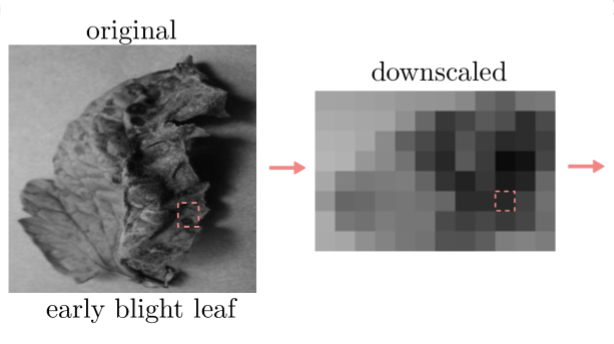Insider Brief
- Xanadu CEO Christian Weedbrook told podcast hosts that his company has set a fundraising target of $100-200 million.
- A critical focus of this funds would be to build a quantum data center.
- The company remains in good financial shape with current funds sufficient to last until early 2026.
- Image: Xanadu
Xanadu, a leading Canadian photonics-based quantum computing company, is focused on a significant — hopefully All-Canadian — fundraising campaign with a target of $100-200 million by the end of this year or early next year, the company’s CEO said on a podcast.
Christian Weedbrook, CEO and founder of Xanadu, recently outlined the company’s vision and funding needs on the Canadian startup podcast Betakit, emphasizing the promising yet nascent state of quantum technology compared to artificial intelligence (AI).
Weedbrook built the timeline for the company’s fundraising efforts on the podcast. He said this raise, if successful, would be followed by another round to get the company to the end of the decade.
“We would probably do another raise to get us to 2029, after this raise, if we’re lucky enough to do it,” said Weedbook. “We have enough money, thankfully, until January, 2026. I’ve been going out last year and this year forming relationships with potential future investors and looking to start at the end of this year, officially raising. That will last us another three years, or so, and then we’ll do another larger raise after that.”

Building The Quantum Data Center
A significant part of Xanadu’s future vision includes the creation of a quantum data center — facilities that Weedbrook is hopeful will be a reality by 2029. A quantum data center would leverage the unique capabilities of quantum computers to solve complex problems that are currently intractable for classical computers.
“The end goal is to have a quantum data center like AWS has their data centers in Azure and customers would use it,” said Weedbrook. “It wouldn’t be used, per se, to store data. It would be to access this premium compute, which happens to be quantum computing.”
This data center could give a computational life to industries ranging from pharmaceuticals to materials science.
Weedbrook told the podcast hosts: “So, if you’re a pharma company, or a materials company — let’s say a battery company — you would have a problem, and typically those ones start off that if you want to find a good candidate for a drug, or a good candidate for material, you would use a lot of resources like HPC and your own compute. You would now go to our cloud quantum data center — our cloud compute — log in and give you this premium cloud compute to give you indicators for better drug candidates and better materials. That’s essentially where we’re headed, that’s the model.”
Weedbrook’s fundraising target is ambitious, aiming to secure an all-Canadian investment round. The company’s last major funding was a $100 million USD round in 2022, led by Georgian, a growth equity firm. The new funds are crucial for advancing Xanadu’s quantum hardware, which Weedbrook acknowledges as being particularly challenging and expensive to develop.
Quantum Vs AI
The wave of funding — and ever-increasing valuations — for AI companies offers an interesting glimpse into what might lie ahead for quantum companies.
One of the critical distinctions Weedbrook noted is the comparatively low profile of quantum computing versus AI.
While AI has attracted massive attention, talent, and investment—sometimes accompanied by significant market volatility—quantum computing remains in a much earlier stage of development. This early-stage status means there is less competition for talent and investment, allowing for a more stable growth environment.
Weedbrook projects that the quantum sector, though smaller now, holds immense potential and will eventually require, just like AI, substantial financial resources to realize its promise. The CEO added that, although quantum hasn’t experienced its ChatGPT moment of hype in the general public, that could change.
“I think quantum will have its AI moment in terms of the buzz we see in generative AI,” said Weedbrook. It’s probably one of the next key technologies that will have a lot of hype around it — some good, some bad.”
Despite these challenges, Weedbrook remains optimistic about the future of quantum technology. He added that the current state of quantum computing contrasts with the often contentious and ethically fraught landscape of AI development. According to Weedbrook, the relative infancy of quantum computing allows for a more positive and collaborative atmosphere within the industry.
Bullish on Canada
Weedbrook, who is also a board member of Quantum Industry Canada (QIC), said his company has received robust support his company from the Canadian government. This includes a substantial $360 million CAD allocation for a national quantum strategy and a $40 million CAD investment through the federal Strategic Innovation Fund (SIF). Furthermore, Xanadu has been a prime beneficiary of the Scientific Research and Experimental Development (SR&ED) tax credit program, which incentivizes research and development in Canada.
According to Weedbrook, these supports position Canada as an excellent environment for building and growing a quantum technology company.
Despite recent criticisms that Canada is not the best place to start a business, Weedbrook is positive about the company’s entrepreneurial environment, adding that any headquarters move would be done over his career’s dead body.
“We’ve been offered or at least suggested, ‘Why don’t you move your headquarters to the US?’” he told the hosts. “The only way we’ll move our headquarters outside of Toronto or Canada is if I get fired.”




















